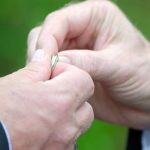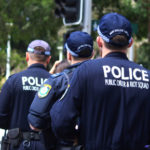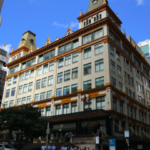NSW Police Pursuit Policy Leads to More Deaths

Community and legal groups have renewed their push for a change to NSW’s police pursuit policy, following the tragic death of three women in Sydney’s West last month. The trio were killed instantly when the car they were travelling in struck a pole moments into a police pursuit.
Local Police told ABC news they were patrolling along Railway Road in Marayong at about 1:15am, when they saw a car being driven without its lights on. The officers attempted to stop the vehicle when it began driving away at high speed.
“Within a matter of seconds it collided with a power pole and, unfortunately, as a result we’ve now got three females who are deceased — [and] a male and a female who are currently in hospital in a serious condition,” Assistant Commissioner Denis Clifford said.
Two women died at the scene; a third later died in hospital. Sadly, this is not the first time deaths have occurred during police pursuits – or even the first time this year.
Around 50 people a year are injured in the course of police pursuits, including drivers, bystanders, passengers and police. Tragically, many are also killed – including those within the pursued vehicle, other motorists and even pedestrians.
It has been five years since the NSW Police Force was tasked with improving the safety of police, drivers, passengers and innocent bystanders with a review of its Safe Driving Policy – yet we are still awaiting the results of the review.
Time for a Change
Senior lawyer at the Redfern Legal Centre, David Porter, expressed his frustration at the review’s delay, recently telling the ABC:
“The most frustrating aspect of this is that apparently progress has been made but that progress is not benefiting the police force or any member of the public because it’s been kept on hold.”
Mr Porter acknowledges the competing considerations at play:
“It is always going to be a tough choice about how to weigh the risk to the public from drivers of various types and the need of the police to investigate and prosecute crime.”
In the last decade, police forces around the Australia and abroad have changed their pursuits policies in response to the unacceptable number of fatalities and injuries associated with high speed chases.
Reforms in the US and UK, as well as in Victoria, Tasmania and Queensland have led to a reduction in the number of critical incidents, and the risks associated with high speed chases. Yet despite an April 2014 Coroner’s recommendation for similar reforms in NSW, changes are yet to come.
Since 2012, NSW police have been involved in almost 1600 pursuits per year, more than 30 a week. Around 60% of chases are in response to traffic offences, such as not complying with stop signs or traffic lights. David Shoebridge, Greens MP and critic of the current pursuit policy, argues that pursuits in there circumstances are unnecessary. Mr Shoebridge recently told the Newcastle Herald:
“Recognising the inherent dangers of police pursuits, a rational policy would reserve them for those circumstances where police literally have no other viable options. In many circumstances alternative options exist. In the great majority of cases where a vehicle fails to stop the police are well aware of the driver’s identity through registration details and police in-car camera images. In a small number of cases the driver’s identity may not be immediately known, but competent policing can discover this information.”
Victoria and West Australian Police Ban Pursuits
Last year, Victoria unveiled its new police pursuit policy, which now bans police pursuits, unless there is a serious risk to public safety, or a crime has been committed which involved a serious injury.
The changes were based on a series of recommendations of a 2013 Coronial inquest into deaths linked to high-speed pursuits. The review found that police could use a series of other, less dangerous, methods to track down suspects who did not pose an immediate risk to public safety.
Assistant Commissioner Hill believes the policy will reduce future injuries and fatalities:
“There is very, very few [incidents] where a fleeing driver stops after he’s made a conscious decision to flee police,” he said.
“Us pursuing them only exacerbates their behaviours. They drive at high speeds, they travel and drive more erratically, it’s just creating more risks on our roads.
He is confident that the new policy will not mean suspects will “get away” with crimes, but will be investigated and possibly arrested later.
In 2011, the union representing West Australian directed members not to engage in high speed pursuits. The union was frustrated that disciplinary action had been taken against police officers, who were accused of driving too fast during pursuits.
With high speed pursuits posing such extreme dangers to the public, with limited benefits, perhaps it’s time for NSW to follow suit.
Going to court for a traffic offence?
If you are going to court for a traffic offence, call or email Sydney Criminal Lawyers anytime to arrange a free first consultation with an experienced, specialist traffic lawyer who will accurately advise you of your options, the best way forward, and fight for the optimal outcome in your specific situation.






